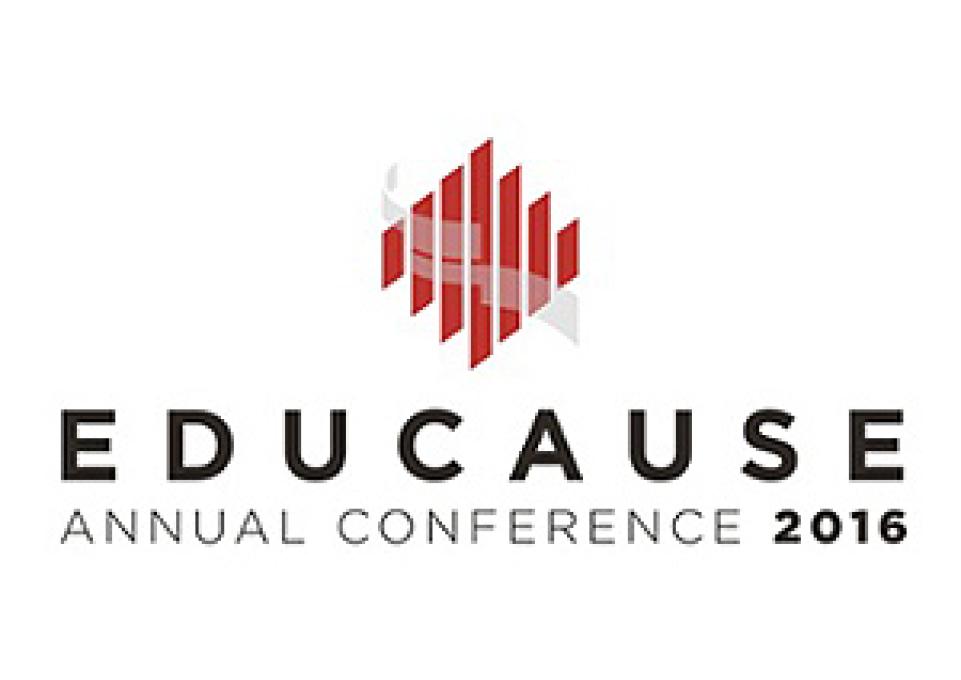
Several members of Buffalo State’s Resources for Information, Technology, and Education (RITE) are presenting at the Educause Annual Conference being held in Anaheim, California from October 25 to 28. Educause is a nonprofit association whose mission is to support the transformation of higher education through the use of information technology.
David Demers, chief information officer, and Judi Basinski, associate vice president for enterprise data and analytics, are co-presenting “Mining the LMS: Identifying Transactional Elements for Prescriptive Analytics” at this year’s conference. This project represents a key area of focus for the newly formed Resources for Information, Technology and Education (RITE) division. RITE, formerly ISAS (Information Systems and Services), was reorganized shortly after Demers became CIO in July 2015.
“For this project, we are looking to combine data from our SIS (student information system) Banner with more transactional data contained within our LMS (learning management system) Blackboard to identify predictive indicators that a student may be struggling in a particular course,” said Demers. “Once we've identified those indicators, we can build a model that will dynamically evaluate students’ Blackboard activity and provide a predictive score that correlates with successful course completion.”
The development of the predictive model is based on several semesters’ worth of historical data across the entire undergraduate student body. The volume of data collected to assemble the model contributes to the model’s efficacy. “The ultimate goal is to help students succeed,” Demers explained. “Early signs of academic struggle could be used to trigger messages to a student suggesting that he or she should see a tutor, visit the Writing Center, or make an appointment with an adviser.”
The key to the success of this project is finding ways to identify risk signals as early as possible in the academic term. “If a student receives a midterm grade warning in Banner, it may be too late,” he said, “since we already know that midterm performance correlates highly with course outcome. If we can intervene very early, we can provide the student with a ‘prescription’ that can improve the odds of academic success in that course.”
Andrew Chambers, information management specialist, and Ken Fujiuchi, information commons and emerging technology librarian, are presenting “Bring Your Own Learning (BYOL): Using Mobile Device Management to Personalize Learning Environments.” Melaine Kenyon, director of RITE technology support services, is presenting “Practices and Experiences in Navigating the IT Pipeline as Women” and “Using LSRS and FLEXspace to Measure Impact and Support Learning Space Master Planning.”
“Six to eight thousand people attend the Educause conference every year,” said Demers. “It’s the biggest meeting of practitioners in higher education who use technological tools to help students succeed. Besides presenting, our team members will attend various workshops, presentations, and sessions as learning opportunities.” For instance, RITE will be actively reviewing CRM (constituent relationship management) tools for use to support, coordinate, and track student advising activities.
For the Educause attendees, the conference won’t end in California as participants will be required to present at the monthly RITE Peer Symposium which provides an opportunity for members of the division to hear and learn about the professional development activities their colleagues have participated in. “I believe in encouraging staff to actively participate in scholarship,” said Demers. “Tapping into the community of practice, like Educause, is essential to find new or effective ways to solve problems.”
